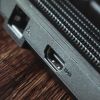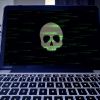-
 +1 +1
+1 +1Guyana bolsters border defences as tensions in Venezuela escalate - CNW Network
Guyana has stepped up its border security after recent political unrest in neighbouring Venezuela, according to officials.
-
 +1 +1
+1 +1Microsoft ditches passwords by default for new accounts
Passkeys were introduced as the proper modern way to sign in securely online. Now, Microsoft's making new accounts passwordless by default.
-
 +1 +1
+1 +1Best 10 Cyber Security Apps to Use for Android, iOS, Windows, Linux
Cyber attacks are a major global issue, with millions of cases reported each year. Hackers target individuals, businesses, and governments, leading to stolen data, financial losses, and identity theft. Recent studies show a sharp rise in ransomware attacks, where criminals demand payments to restore access to encrypted data. Phishing scams are also widespread, tricking people […]
-
 +1 +1
+1 +1REAL ID enforcement could be delayed until 2027
Federal enforcement is set to begin in May 2025, but the Transportation Security Administration (TSA) just proposed a more flexible approach to the rollout, hoping to now achieve full enforcement by May 2027.
-
 +10 +3
+10 +3Was your Social Security number leaked to the dark web? Use this tool to find out
A recent breach involving nearly 3 billion personal records included many Social Security numbers. Was yours one of them? Here's how to check and what to do to protect yourself.
-
 +6 +2
+6 +2Smartphone flaw allows hackers and governments to map your home
A newly identified smartphone vulnerability can reveal the floor plans of where you are and what you are doing - and it is possible that companies or intelligence agencies are already making use of it
-
 +38 +7
+38 +7Mac and Windows users infected by software updates delivered over hacked ISP
DNS poisoning attack worked even when targets used DNS from Google and Cloudflare.
-
 +3 +1
+3 +1Are we too dependent on Microsoft?
After two major outages in as many weeks — including the CrowdStrike crash — alarm bells are ringing about the world's overreliance on Microsoft. Andrew Chang breaks down what happened, who's to blame and digs into just how much of our lives are connected to Microsoft.
-
 +2 +1
+2 +1Hackers can watch your screen via HDMI radiation
A newly-discovered technique combines wireless EM monitoring and AI algorithms to "read" text on a victim's screen, and it's already being used in the wild.
-
 +34 +4
+34 +4Microsoft 365 goes down - again
UPDATED: It's not just you (or Crowdstrike) - Microsoft 365 really is going through an outage. Here's what we know.
-
 +22 +4
+22 +4CrowdStrike meets Murphy's Law: If it can go wrong, it will
And boy, did last Friday's Windows fiasco ever prove that yet again
-
 +14 +6
+14 +6Could eBPF Save Us From CrowdStrike-Style Disasters?
In the aftermath of the CrowdStrike Windows security fiasco, security experts and developers alike are looking for a safer way to run low-level security programs. One possible solution is eBPF.
-
 +1 +1
+1 +17 Urgent Lessons From the CrowdStrike Disaster
What can IT organizations learn from the software update that brought the world to its knees this week? Spoiler: a lot of things they should already know.
-
 +5 +2
+5 +2Put not your trust in Windows — or CrowdStrike
Who in the world would trust Windows for any mission-critical work?
-
 +42 +9
+42 +9Cloudflare reports almost 7% of internet traffic is malicious
Fortunately, there are things you can do to help protect yourself and your websites.
-
 +2 +1
+2 +1Hunting the Stealth Hacker in the Kubernetes Jungle
Let log analysis be the guide for your Kubernetes security safari.
-
 +37 +6
+37 +6Over 14M servers may be vulnerable to OpenSSH's regreSSHion RCE flaw. Here's what you need to do
OpenSSH, the bedrock of secure Linux network access, has a nasty security flaw.
-
 +30 +6
+30 +6Email Domain Health and Security Checker (SPF, DKIM, DMARC, BIMI, MTA-STS)
Our email domain health and security checker tool analyzes your domain’s configuration to ensure your DNS and Email server are properly configured so that the emails are delivered securely and don’t fall prey to spamming, spoofing or other malicious activities.Think of it like a checkup for your email system. It examines critical settings like:
-
 +37 +5
+37 +5We analysed the entire web and found a cybersecurity threat lurking in plain sight
Think you can trust every website? One typo and you could be caught in a phishing trap.
-
 +36 +4
+36 +4Windows: Insecure by design
Get your hands off my computer, Microsoft!
Submit a link
Start a discussion




















